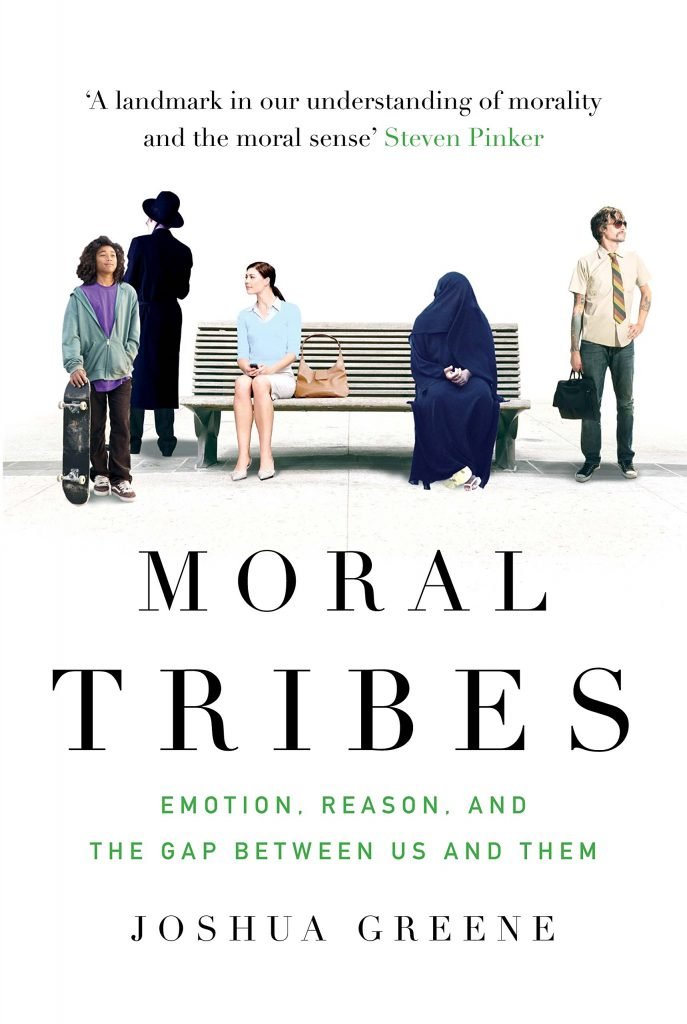Religious Communities Could Help Us Develop the Power to Slow Down our Moral Responses
All religious communities are schools of moral formation and moral discourse. The work of defining the gap between “is” and “ought,” the difference between right and wrong, between the desirable and the undesirable, between what to love and hold close and what to reject, between times to act and times to wait—this work is essential in every religious community.
Some communities fail miserably at this work, especially when leaders violate their fiduciary responsibilities and exploit the vulnerable. Some communities are effective at inculcating a moral core in its adherents, whether or not you or I would agree with the content of that moral core.
I wonder how intentional religious communities are in their work of moral formation.
 Moral Tribes is a 2013 book by Harvard psychologist and brain researcher Joshua Greene. The subtitle is “Emotion, Reason, and the Gap Between Us and Them.” His basic argument is: there are two different moral response modes rooted in the brain, one automatic and one manual. (Greene references Daniel Kahneman’s Thinking, Fast and Slow.) Our automatic moral response is emotion-based. The emotion-based moral system is pre-programmed for tribal behavior (he is using “tribe” as an anthropologist does, referring to an identity group larger than a family but smaller than a nation). We feel safer around people who we perceive to be “like us.” We care for and defend those persons we think are “like us.”
Moral Tribes is a 2013 book by Harvard psychologist and brain researcher Joshua Greene. The subtitle is “Emotion, Reason, and the Gap Between Us and Them.” His basic argument is: there are two different moral response modes rooted in the brain, one automatic and one manual. (Greene references Daniel Kahneman’s Thinking, Fast and Slow.) Our automatic moral response is emotion-based. The emotion-based moral system is pre-programmed for tribal behavior (he is using “tribe” as an anthropologist does, referring to an identity group larger than a family but smaller than a nation). We feel safer around people who we perceive to be “like us.” We care for and defend those persons we think are “like us.”
Human beings evolved to form tribes because cooperation is a competitive advantage. But the cooperation that is a virtue of intra-group life is the source of competition with out-groups. By forming tribes, my tribe can cooperate to survive competition with other tribes, or to defeat them.
The automatic moral response is one of the leading sources of division in today’s hyper-partisan politics.
We who are working for a more just, hospitable, and compassionate multi-cultural, multi-religious America have a moral response that conflicts deeply with the automatic responses of the tribes that are enacting their will in state and federal politics and policies.
Greene labels the other moral response “manual” to indicate this mode of decision-making is volitional. One must make a choice, a decision. In any particular person or culture, the manual moral mode might be underdeveloped. It might be developed only to rationalize and provide reasons for automatic decisions. It might be developed sufficiently to challenge and supplant the automatic.
Any kind of cosmopolitan, transnational ethics which seek the good for the human race—without regard to tribe—and for the planet derives from the manual mode. Given the problematics facing the human race, more and more powerful manual mode thinking would be good!
The good news, according to Dr. Greene, is that tribalism is more like code than hardware. Human beings don’t have to behave as competing tribes. We can develop the moral imagination to live toward a better life for more people, and for more of the planet’s ecosystems, than is currently the case.
Which communities and what activities can strengthen manual moral decision-making, in persons and groups, to move us toward a more just, compassionate, equal nation that cooperates with other nations for the good of all rather than competes for regional or world dominance?
Through the centuries, religions have developed traditions of spiritual and moral formation designed to shape its adherents’ automatic moral responses and their powers of responding with reason and not simply rationalization. Prayer, worship, education classes, service projects, global studies.
Religion can be excellent in building walls around its tribe and rejecting, or consigning to hell, members of other tribes. And, religion can excel at building bridges of cooperation and compassion between groups. In Tulsa as in much of the rest of the nation, we see both!
Bridge-building is intrinsic to compassion, to expanding the circle of who we consider “like us.” Our automatic moral response mode disposes us to be compassionate to those who are “like us,” to sit with others in their suffering and to see what we can do to relieve their suffering so that no one suffers alone and so that the group remains strong.
What we need—we, religious people, we residents of the U.S.—is more, and more intentional, moral formation that will strengthen our communities, our tribes, and our nation’s capacity to see “the Other” as “like me,” “like us.”
Who could lead the way? Public schools are overburdened. Many politicians in power have another agenda. Social good entrepreneurs are doing admirable work. But the organizations that have more opportunity than perhaps any other type of organization in our society to step up to the plate, and do the work of moral formation, remain religious organizations.
Now would be a good time for those who believe in building bridges of compassion rather than walls of rejection to get louder and do the work of moral formation with more attention and intention.


Comments are closed.